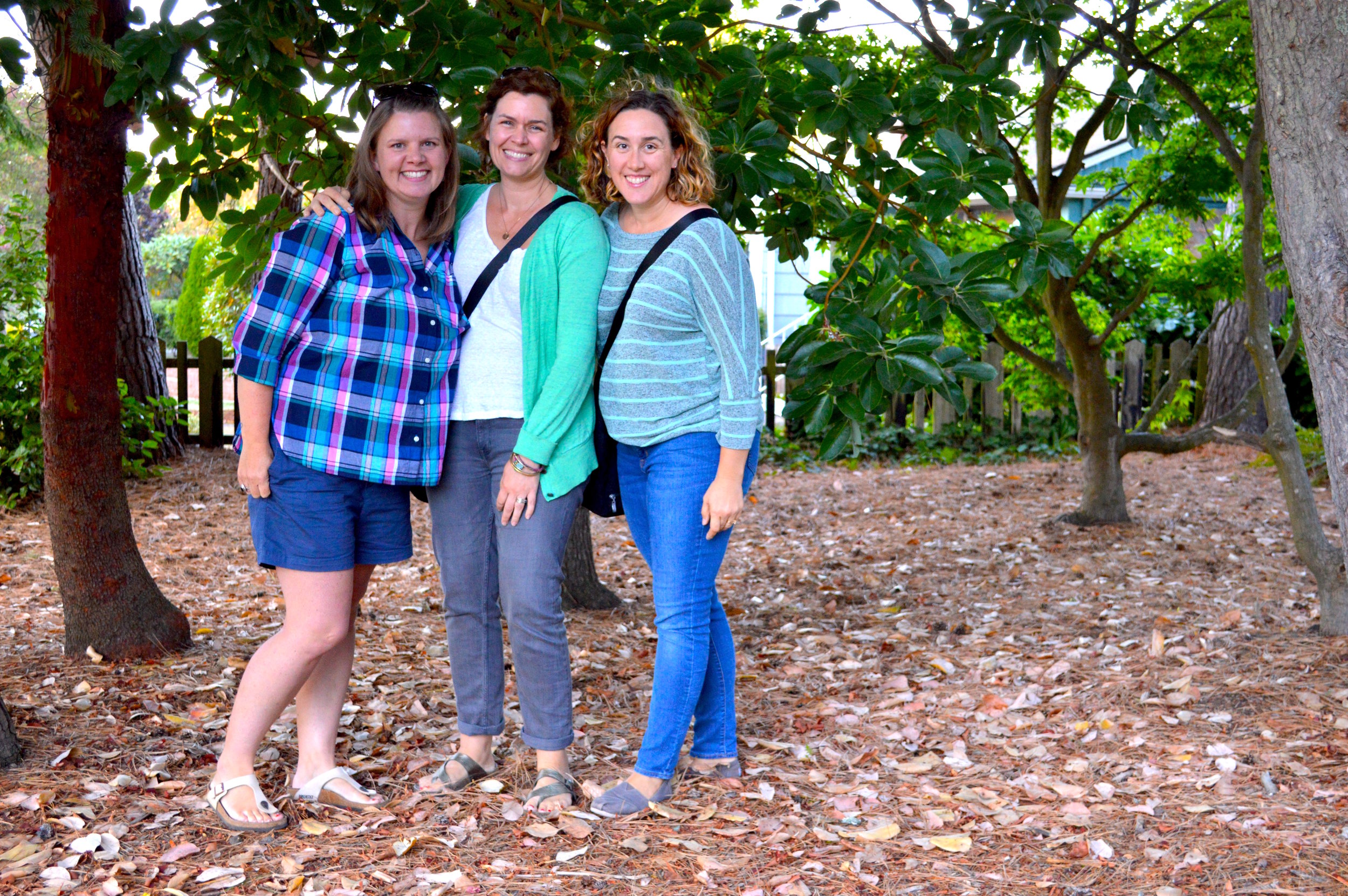From left, Katie Stemp, Phoebe Ingraham and Kristen Bedford, from the nonprofit Urban Homestead Foundation, are asking the community to support their effort to save a piece of land on the corner of 50 Ave SW and SW Dakota and transform it into a neighborhood green space and demonstration garden.
Lindsay Peyton
Mon, 10/02/2017
By Lindsay Peyton
An overgrown lot located on the corner of 50 Ave SW and SW Dakota St has become the center of a big vision for a few dedicated West Seattle residents.
To most, the property would be easy to pass by. The decommissioned Seattle City Light substation stands vacant, adorned only with a chained up gravel pad, where electric equipment once stood.
Katie Stemp, however, recognizes the site as an urban forest grove, complete with Scots pine, Pacific madrone, Ponderosa pine, Japanese maple and Lebanon cedar.
She wants to save the trees – and turn the plot into a green space, complete with demonstration gardens, greenhouse, fruit orchard, workshop space, park benches and an outdoor cob oven.
“We would have a covered structure where we can host classes, tons of raised beds in front, dwarf fruit trees and a container garden,” Stemp said. “We could show a lot of ways that people could grow food in their own space at home.”
She first discovered the 10,000 sq. ft. lot about two years ago, when it came up for sale by the City of Seattle.
The Seattle City Council agreed to allow an extension of the sale date for a community organization, if the group could raise the funding needed.
Stemp joined forces with Kristen Bedford and Phoebe Ingraham to create a nonprofit to meet the city’s requirements.
They formed the Urban Homestead Foundation – and the city granted them until the end of 2017 to purchase the site, which was recently appraised at $650,000.
The women named the project the “Dakota Homestead Site.”
Ingraham said their plan includes partnering with other educational organizations, as well as groupd those promoting sustainability and the environment. The lot could become a home for a rain garden or solar power demonstration site.
“People can take classes, learn it here and bring it back to their own space,” she said.
With an elementary school across the street, Bedford believes the garden would become a destination for field trips.
“We would really integrate science, nature and art,” she said. “That’s what we need to teach kids -- the innovation and creativity from nature-based education. This is our opportunity – but that window is closing.”
She explained that there aren’t a lot of grants out there for the acquisition of land – and the Urban Homestead Foundation is consumed with fundraising.
Stemp said the nonprofit has acquired a matching grant of half of the amount needed – but they have a long ways to go to reach that milestone.
“What we really need are corporate sponsors,” she said. “And we need it by the end of the year, or else this goes back on the market and developers will jump on it. It’s Hail Mary time.”
So far, the nonprofit has raised $30,000 from individual donors.
“We’re looking for a champion,” Ingraham said.
She hopes to not only finish the fundraising effort and build the garden but to set a precedent for other communities that want to preserve green space in their neighborhoods.
“Our vision is that this could be a replicable model of the community coming together to save something,” she said. “But right now, we just need this to happen. We need to save this piece of land.”
Bedford said that individuals can also help by voicing their support to the city council.
“People who are passionate about this, their voices are important,” she said. “We need to hear from them.”
To learn more about how to become involved in this project or to donate online, visit www.urbanhomesteadfoundation.org .
